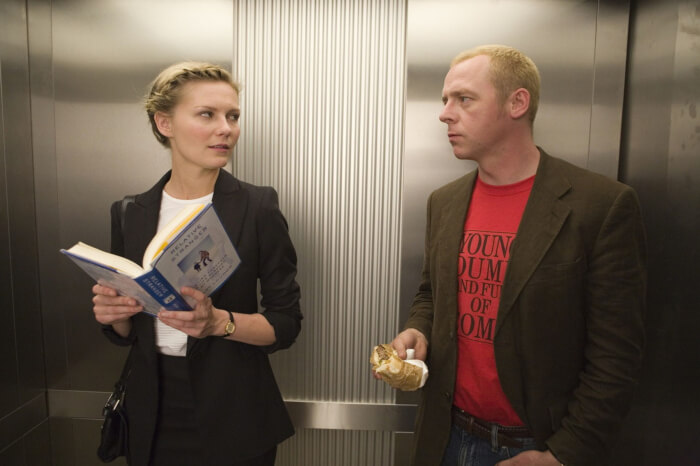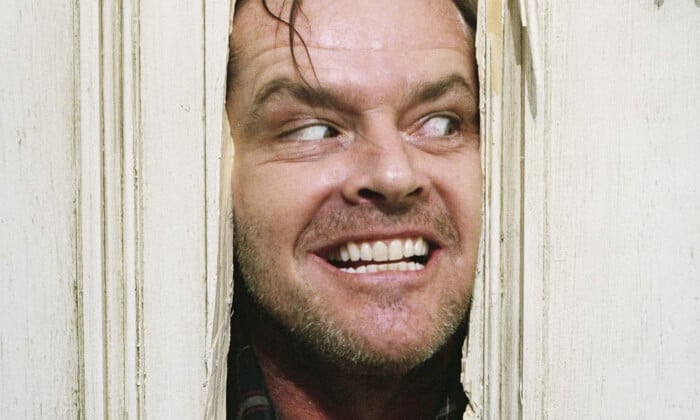It’s really hard for the producer making film adaptations to deliver ins-and-out from the original version. Sometimes that upsets fans, especially the big fans of the original stories. Given that, however, many moviemakers still go for them no matter dealing with criticism.
Some producers make their adaptation version dramatically different from the original one. That sounds likely to suffer under the lash, yet surprisingly gained a huge following. There’s a good reason for that: the original version has some uneven points and the adaptation one really improves that.
In this post, we highlight the top 5 film adaptations that totally changed their source material. They’re better than their original version and have had a cult following. Scrolling down to check them out.
The film adaptation of the How to Lose Friends and Alienate People movie stayed mostly the same, with Simon Pegg's Sydney Young trying to win over his cynical editor while slamming the egotistical celebrities in his immediate vicinity. However, there was a noticeable tone change. In the end, the movie is a funnier and more entertaining story, whereas the book offers a mocking look at the behind-the-scenes activities of the self-replicating celebrity industry.
Large portions of the novel were abandoned by Ridley Scott and his team, and the narrative's emphasis was significantly changed from Deckard's social standing to a much more profound question: "What is it to have life?" Blade Runner develops into a deeper reflection on the value of life and the boundaries of enslavement as Roy Batty and his compatriots try desperately to find Dr. Tyrell and extend their four-year artificial lifespans.
With millions of people being inspired to read the novel it was based on, Blade Runner has emerged as one of cinema's greatest treasures.
The classic tale of Ishmael, Captain Ahab, and the cursed white whale has been adapted into this iconic story numerous times, but none have been able to fully capture the intensity of Herman Melville's writing or the intricate description of madness he wove through his narrative. But in 1956, John Huston and Gregory Peck tried their hand at a Moby Dick film adaptation, and the result was unforgettable.
Gregory Peck portrayed the captivating man driven to insanity by his hate of the whale, while director John Huston captured the frustrating journey of Captain Ahab and his crew. The final product is a good movie that continues to be the best Moby Dick adaption to date. Even while it was excellent, it still couldn't convey in two hours what Melville wrote in more than 500 pages. Those chapters contain much too much intricate profundity to ever fit in a feature picture.
Obviously, he was successful in bringing the magic of the novels to audiences all over the world, and his level of critical success helped to usher in a new era of fantasy cinema where producers were more prepared to take a chance with bigger budgets and bigger plots. Nevertheless, the original Lord of the Rings novels continues to be much more complicated than the cinematic trilogy, with more plot lines and people to root for.
The Lord of the Rings film is a unique example of a film that respects its original works while still making significant alterations. Since they recognize that Peter Jackson's deletions were made in good faith, few book lovers have any issues with his films.
With that idea as a springboard, Stanley Kubrick saw an opportunity to craft a brilliant horror movie that constantly instills moviegoers with dread and anxiety. It is well known that Stephen King abhorred Stanley Kubrick's film adaptation of his book and disliked the filmmaker for drastically altering the plot—so much so that he later created and filmed his own version of The Shining. (That one ultimately ended in a trainwreck. While the majority of moviegoers still regard The Shining as a masterpiece of gradual terror, King continues to deny its existence.
Some producers make their adaptation version dramatically different from the original one. That sounds likely to suffer under the lash, yet surprisingly gained a huge following. There’s a good reason for that: the original version has some uneven points and the adaptation one really improves that.
In this post, we highlight the top 5 film adaptations that totally changed their source material. They’re better than their original version and have had a cult following. Scrolling down to check them out.
#5 How to Lose Friends and Alienate People (2008)

Source: bigodino
The story of a fish out of water may be found in Toby Young's memoir about his time working for Vanity Fair and its illustrious editor, Graydon Carter. The stories that unfold across the book's pages are extraordinary since Young navigated the Entertainment industry while using his caustic humor to make fun of folks who believed they were superior to most other people.The film adaptation of the How to Lose Friends and Alienate People movie stayed mostly the same, with Simon Pegg's Sydney Young trying to win over his cynical editor while slamming the egotistical celebrities in his immediate vicinity. However, there was a noticeable tone change. In the end, the movie is a funnier and more entertaining story, whereas the book offers a mocking look at the behind-the-scenes activities of the self-replicating celebrity industry.
#4 Blade Runner (1982)

Source: @d1softballnews
Famous sci-fi author Philip K. Dick always wrote some of the best stories, but with “Do Androids Dream of Electric Sheep?”, he seemed to be out of track. Then Blade Runner appeared and demonstrated that all it takes is for one person to read a book—the right person—for that novel to have an enduring effect on the world. Ridley Scott, who read the novel and chose to adapt it for the big screen, was in this instance the one appropriate person.Large portions of the novel were abandoned by Ridley Scott and his team, and the narrative's emphasis was significantly changed from Deckard's social standing to a much more profound question: "What is it to have life?" Blade Runner develops into a deeper reflection on the value of life and the boundaries of enslavement as Roy Batty and his compatriots try desperately to find Dr. Tyrell and extend their four-year artificial lifespans.
With millions of people being inspired to read the novel it was based on, Blade Runner has emerged as one of cinema's greatest treasures.
#3 Moby Dick (1956)

Source: @theridgewoodblog
Moby Dick's literary masterpiece is almost completely unadaptable. For filmmakers who think the book can be authentically adapted for the big screen, Moby Dick represents something of a white whale in its own poetic way.The classic tale of Ishmael, Captain Ahab, and the cursed white whale has been adapted into this iconic story numerous times, but none have been able to fully capture the intensity of Herman Melville's writing or the intricate description of madness he wove through his narrative. But in 1956, John Huston and Gregory Peck tried their hand at a Moby Dick film adaptation, and the result was unforgettable.
Gregory Peck portrayed the captivating man driven to insanity by his hate of the whale, while director John Huston captured the frustrating journey of Captain Ahab and his crew. The final product is a good movie that continues to be the best Moby Dick adaption to date. Even while it was excellent, it still couldn't convey in two hours what Melville wrote in more than 500 pages. Those chapters contain much too much intricate profundity to ever fit in a feature picture.
#2 The Lord of the Rings (2001–2003)

Source: @imdb
The original Lord of the Rings books were so tightly packed with scenes and worldbuilding that most of it couldn't fit in a feature film, despite the fact that the films rather closely followed the books' overarching plot. Director Peter Jackson had the difficult challenge of recreating the spirit and energy of the books. He had to translate the best parts of the books to the cinematic stage while removing everything else that didn't significantly enhance the cinematic experience.Obviously, he was successful in bringing the magic of the novels to audiences all over the world, and his level of critical success helped to usher in a new era of fantasy cinema where producers were more prepared to take a chance with bigger budgets and bigger plots. Nevertheless, the original Lord of the Rings novels continues to be much more complicated than the cinematic trilogy, with more plot lines and people to root for.
The Lord of the Rings film is a unique example of a film that respects its original works while still making significant alterations. Since they recognize that Peter Jackson's deletions were made in good faith, few book lovers have any issues with his films.
#1 The Shining (1980)

Source: @sharethislive
The Shining by Stanley Kubrick isn't an exact recreation of Stephen King's well-known novel. Given that the filmmaker significantly altered the original content from the book, it is more of a retelling. Yes, the storyline is much the same: during a winter spent caring for a frightening hotel, a family is ripped apart by evil forces. The similarities end there, essentially.With that idea as a springboard, Stanley Kubrick saw an opportunity to craft a brilliant horror movie that constantly instills moviegoers with dread and anxiety. It is well known that Stephen King abhorred Stanley Kubrick's film adaptation of his book and disliked the filmmaker for drastically altering the plot—so much so that he later created and filmed his own version of The Shining. (That one ultimately ended in a trainwreck. While the majority of moviegoers still regard The Shining as a masterpiece of gradual terror, King continues to deny its existence.